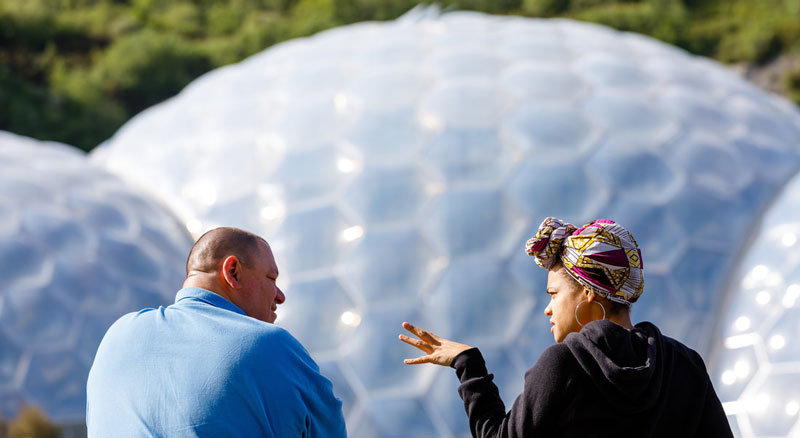Eden Project Communities listening to voices of experience
We hear from Peter Lefort from Eden Project Communities on listening to voices of experience.

Peter manages the programmes of Eden Project Communities across England. These programmes range from mass-participation events such as The Big Lunch, which saw 9.3 million people take part in 2017, to supporting a peer-network of community activists, leaders and volunteers, including many at the start of their Community Business journey.
The term ‘expert’ has become a dirty word. Look at Donald Trump’s presidential campaign, or the collective confusion around Brexit, or the proliferation of fake news all over social media. We no longer feel the need to defer to those who have studied in their field for years in order to form our own opinions about anything and everything.
For those of us who are part of, or support, networks, this poses an interesting question. Should we work to re-establish a deference to experts, in order to learn from what has gone before, or should we abandon the term and embrace the opportunity to write our own answers?
Working with communities, where people are generally operating at capacity at all times, and new opportunities and ideas can seem daunting, the ability to signpost to experts can be hugely valuable. People who have been there and done that, people who have (sometimes literally) written the book, can make the difference to the widest possible audience having the confidence to start their own projects.
On the other hand, looking up to and learning from experts can create a hierarchy which makes it hard for people to suggest new ideas. This can have the effect of maintaining the status quo, which is not always a bad thing, but when the traditional experts generally inhabit a particular age, ethnicity or gender, it can be a real barrier to addressing inequality and finding new, inclusive routes to action.
So, to answer the question, I would (conveniently!) argue that we can do both. Expertise has real value to those who need it, but it is a term which can challenge new ways of thinking. So let’s broaden the term, and look at it in a new way. The label ‘expert’ does not need to be a static term, but a relative one. It’s not about knowing a specific thing; it’s about knowing the right thing at the right time to the right person. In this way, we are all experts of our own experience, we just need to be aware of the moments when our own insight and ideas have relevance to others.
This is the principle behind the Eden Project Communities network. Its only rule is that its members are all trying to make positive change happen in their communities. Knowledge and experience is useful, but it is the shared values which create relationships, and also an understanding that everyone’s experience has real worth when shared with others in need of connection.
Another excellent example is the Poverty Truth Commission. This is a model in which people with lived experience of poverty are brought together, crucially on an equal footing, with policy makers to discuss responses to poverty. It ensures that those affected by decisions are central to the decision-making.
For both of these examples, it is the connection of people with different experiences, and the acceptance on all sides of how valuable the others’ experiences are, which makes positive social change a possibility. These networks are built on the value of expertise, but simultaneously also on a radical reframing of what we have come to understand expertise to mean.
It’s never easy to change accepted responses to terms such as ‘expert,’ and it is especially hard to convince those making things happen in communities of the value of their own expertise when their sector is traditionally undervalued next to the traditional expertise of big business and academia. But if we can, then maybe we can reclaim the ‘expert’ as a role we can all play when the opportunity arises, and we are more likely to actually listen when someone is telling us something we really need to hear.

